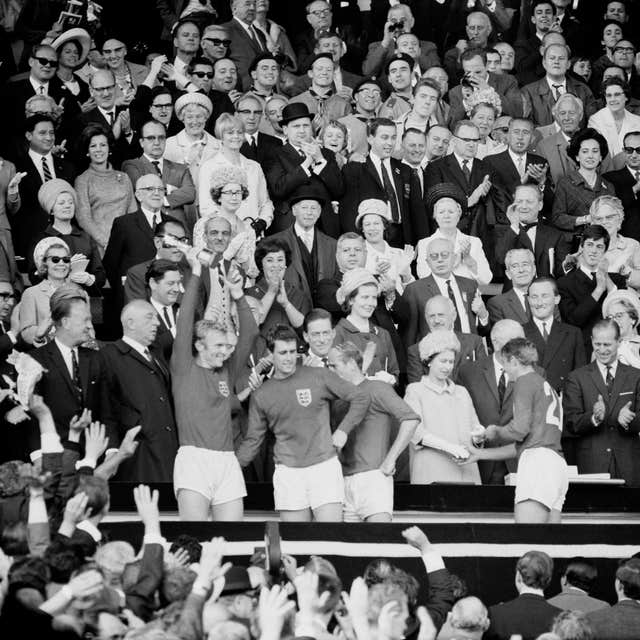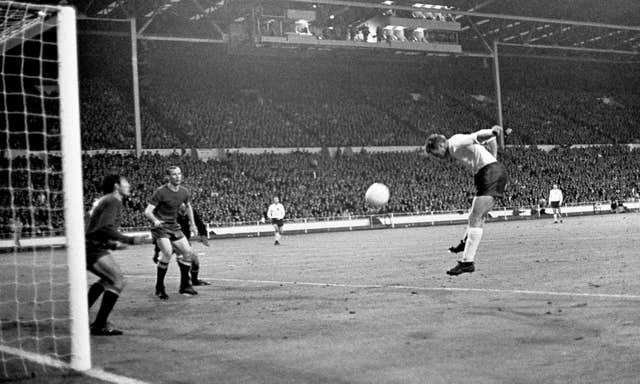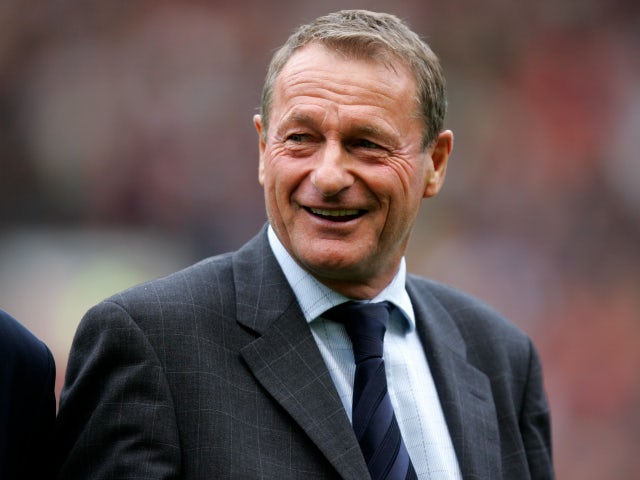To the Kop he was simply known as Sir Roger. A banner proclaiming as much is regularly unfurled every match day.
The fact Roger Hunt, who has died at the age of 83, was never honoured to the extent of some of his England World Cup-winning team-mates or numerous less-decorated footballers since has always been a source of bewilderment to Liverpool fans.
Belated recognition for that 1966 triumph in the form of an MBE was finally bestowed at the turn of the century, but it is his exploits for club, not country, for which he is revered by the red half of Merseyside.
His name is likely to remain in Liverpool’s history books in perpetuity as if Ian Rush, the club’s all-time leading scorer in all competitions, could not overcome his league goals record – 244 in 404 games – the likelihood is no-one will.
Hunt was born in Golborne, Cheshire, on July 20, 1938.
Having had a trial at Bury before opting to return to the family haulage business, he signed for Liverpool after being spotted playing for local amateur team Stockton Heath while on leave from the army aged 21 in 1959.
#OnThisDay in 1958, 'Sir' Roger Hunt joined #LFC. 🔴
285 Reds goals. 🙌 pic.twitter.com/JmlEb4XXx8
— Liverpool FC (@LFC) July 29, 2018
He scored on his home debut and proceeded to spend the next decade banging in the goals and winning trophies.
His remarkable 41 goals in as many games in the 1961-62 season helped Liverpool to win promotion as runaway Division Two champions and that form continued in the top flight as his partnership with Ian St John was written into footballing folklore.
Hunt’s goals helped Liverpool to the Division One title in 1963-64, a first FA Cup in 1965 and the league championship again in 1965-66 before greater glories followed at international level.
He had gone to the 1962 World Cup, having been called up while still a Second Division player, but did not feature. Four years later he was a key member of the squad.
Hunt, who had the honour of scoring the first goal to be shown on Match of the Day in August 1964, played in all six England matches on home soil, scoring three times.
He is, of course, intrinsically linked to Sir Geoff Hurst’s controversial second goal in the final which hit the crossbar and bounced down over the line, despite West Germany’s protestations to the contrary.
He was the nearest player to the ball and Hurst has always argued that, had there been any doubt, a striker of Hunt’s instincts would have been more interested in converting the rebound and not wheeling away in celebration.

He finished his international career in 1969 with 18 goals from 34 caps.
There were to be plenty more goals, but no more trophies, on the domestic front before Bill Shankly’s squad rebuilding saw Hunt move on to Bolton in 1969 after 285 goals in 492 games in all competitions for the Reds. He retired from playing three years later, going on to work in his family’s haulage business again.
Having overtaken Gordon Hodgson as Liverpool’s all-time leading goalscorer in November 1967 with his 242nd strike, Hunt’s record stood until October 1992 when it was broken by Rush. His overall tally remains second only to the Welshman’s in the club’s scoring charts.

The esteem with which he was held at Anfield was so high that when he returned in 1972 to play in his testimonial the gates were locked an hour before kick-off as 56,000 – with thousands more reported to be outside – packed into the ground.
That he was not duly recognised by the establishment for nearly another 30 years was a source of frustration to some and embarrassment for others and, had it not been for a media campaign he, and other team-mates, may not have received it at all.
But there was never any doubt of his place among football’s elite. Just ask those Kopites waving his flag.
Hunt, who died peacefully at home on Monday evening following a long illness, is survived by his second wife Rowan, as well as son David and daughter Julie from his first marriage to Patricia.








